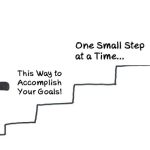Life has a fairly standard path for most of us: birth, care from our parents, education, self-sufficiency, family formation, aging, and eventually, passing away.
.
It sounds like a good way to kick off an article, doesn’t it?
.
In this piece, we’ll zoom in on the education part of this journey, a significant chunk of our lives that lasts approximately 12 years or more.
.
Considering an average lifespan of around 80 years, that’s over 15% of your life dedicated to education.
.
The Goal of Schooling
.
Education should equip you with the skills and knowledge needed to be self-sufficient and contribute positively to society’s socio-economic system.
.
Unfortunately, in the past few decades, it hasn’t done a stellar job at it.
.
It’s okay, but it could definitely be more efficient and effective.
.
Here’s a list of crucial life lessons that should be part of the curriculum, but are often missing:
.
- Understanding Money Matters
.
Learning how money works should be a priority.
.
Subjects like earning, saving, investing, and even basic financial management would benefit students, as money plays a pivotal role in our lives.
.
- Mental and Physical Health
.
Mental health education should address issues like anxiety, depression, and stress management.
.
Alongside this, understanding physical health, nutrition, and basic first aid should be mandatory.
.
- Dating and Romantic Relationships
.
Learning how to build healthy relationships, identify compatibility, and navigate the complexities of dating is essential.
.
- Taxes and Bills
.
The basics of taxes, bills, and financial responsibilities should be taught, ensuring that students are prepared for managing their finances effectively.
.
- Social Skills
.
Teaching students how to make friends, communicate effectively, and network is critical.
.
Success often hinges on our ability to connect with others.
.
- Debt, Interest, and Mortgages
.
Differentiating between good and bad debt and understanding how interest and mortgages work are skills needed for navigating adult life.
.
- Learning How to Learn
.
Mastering the art of learning should be a part of the curriculum.
.
Knowing how to acquire new skills and knowledge independently empowers individuals throughout their lives.
.
- Discovering Your Passion and Values
.
Encouraging introspection and helping students understand their values and passions is crucial.
.
It paves the way for making informed life choices.
.
- Job Search and Interview Preparation
.
Practical guidance on finding the right job, crafting resumes, and preparing for interviews should be part of the curriculum.
.
- Public Speaking and Selling Ideas
.
Overcoming the fear of public speaking and mastering the art of articulating ideas should be taught.
.
These skills are invaluable for personal and professional success.
.
- Basic Life Skills
.
Teaching basic cooking, home maintenance, and self-sufficiency ensures students can take care of themselves and their homes.
.
- Digital and Personal Etiquette
.
Understanding the impact of one’s digital presence, maintaining digital etiquette, and respecting privacy are essential skills for the digital age.
.
- Human Rights and Government Function
.
Educating students about human rights, government functions, and the importance of voting is necessary for creating informed and responsible citizens.
.
- Time Management and Discipline
.
Time management and discipline are critical skills that prevent procrastination and inefficiency in all aspects of life.
.
The educational system needs a significant revamp to prepare students for the practical challenges of adulthood.
.
By including these life skills in the curriculum, schools can better equip the next generation for a successful and fulfilling life journey.
.
After all, education should go beyond the classroom and provide essential tools for real-life success. 💡📚✨






